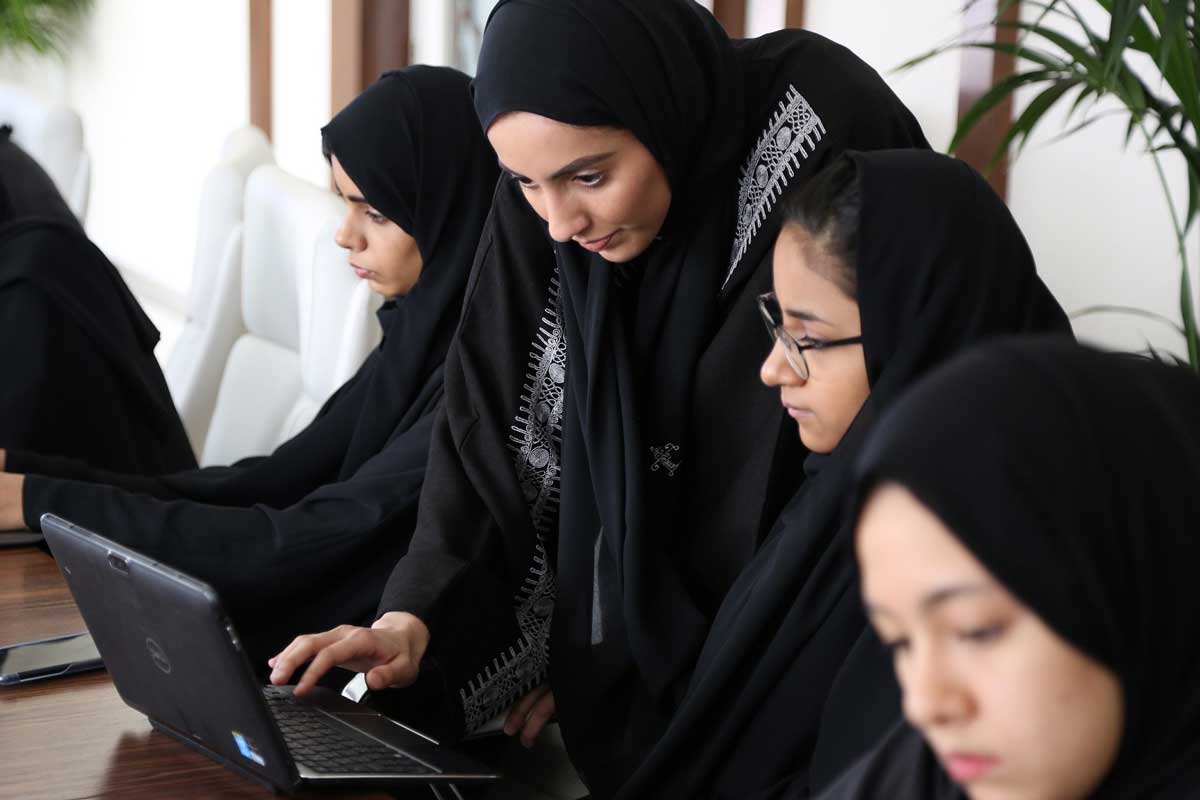The Paris Olympics 2024 was a remarkable moment in time for the world, but for the UAE, it brought the additional distinction of being the platform for Safiya Al Sayegh, the first Emirati female cyclist, to fly the national flag at the Games.
Safiya’s Olympic appearance is a milestone that builds on the UAE’s decades-long legacy of providing a platform for women to excel. Be it Dr Shaikha Al Maskari, a pioneering Emirati engineer and geophysicist widely touted as the first woman to work in the oil fields of Abu Dhabi in the 1970s or Nora Al Matrooshi, a mechanical engineer who in March graduated from a two-year NASA astronaut training programme, female representation is intrinsically woven into the Emirati economy.
The UAE leadership has been the chief advocate for female empowerment, as is reflected in the country’s key economic indicators. Women make up about 75 percent of the country’s education and health sectors, and women are estimated to have invested about AED 90.5 billion in the UAE’s real estate sector in 2023, with Emiratis topping the table of women investors, according to Hedge & Sachs. Female representation is also evident in the STEM segments, with women representing 45 percent of the UAE’s space sector. Additionally, 20 percent of the UAE’s nuclear energy sector is comprised of Emirati women.
The UAE’s commitment to holistic inclusivity speaks to an inherent recognition by our leadership that carving out a space for progress and inclusion is not the responsibility of the individual, but an onus that rests on the broad shoulders of the collective. The UAE’s concerted efforts to champion female participation in the government and private sectors are as much a case for gender equality as for collective economic resilience.
Policy support
Policy and government-led initiatives have ensured women have a seat at the table where decisions for cultural, economic, and social advancements are made, such as the UAE Gender Balance Council and, more recently, the Dubai Women’s Establishment, which also counts TECOM Group’s Khadija Al Bastaki, Senior Vice President of Dubai Design District (d3), on its board.
Women comprise one-fourth of the UAE’s Cabinet, and leaders such as Dr Amna bint Abdullah Al Dahak Al Shamsi, Minister of Climate Change and Environment, and Ohood bint Khalfan Al Roumi, Minister of State for Government Development and the Future,6 are among the women are reimagining the world for the good of all.
Moreover, Emirati women, alongside the myriad nationalities that call the UAE their home, are actively shaping the national economy. The Ministry of Human Resources and Emiratisation announced a 23.1 percent surge in female participation in the private sector in 2023, setting the stage for a future in which talented women from around the world contribute towards national economic development.
This talent pool is also offered legal protections, including against gender-based discrimination in terms of opportunities, salaries, or working conditions. The UAE Labour Law guards against restrictions on women working in sectors such as mining, construction, manufacturing, energy, agriculture, and transportation, as well as prohibits employers from dismissing a female employee due to pregnancy. Women in the UAE are also entitled to 60 days of maternity leave, ensuring their development in the workplace is inclusive of their personal and professional ambitions.
Holistic inclusion
Global gender balance programmes are increasingly shifting from shattering the ‘glass ceiling’ to repairing the ‘broken rung’. Organisations are not only building pathways to help women more easily enter professional settings, but also adapting workplace cultures to retain talent with strategic mentorship and leadership programmes, upskilling and professional development training modules, and long-term growth roadmaps.
This was the founding objective that inspired TECOM Group’s 2023 Emirati Women’s Day campaign ‘Hands of Tribute’, which celebrated the strengths and qualities of Emirati women through the ages, platforming their authentic experiences as both professionals and individuals to inspire behavioural change and perceptions of their contributions to the UAE’s society and economy.
Our environment, social, and governance (ESG) strategy, aligned with the United Nations’ Sustainable Development Goal (SDG) framework, is geared towards sustaining the momentum of such efforts. TECOM Group noted a 7.32 percent increase in women-owned start-ups at our in5 incubator in 2023, in addition to an Emiratisation rate of 24.43 percent, with women representing more than one-third of TECOM Group’s workforce.
TECOM Group’s legacy of enabling and empowering business excellence reflects the high standards of corporate social citizenship against which we measure our progress. This progress is inherently incomplete without the Emirati mothers and sisters that have shaped the world around us, and it is why I’m proud to celebrate Emirati Women’s Day, which each year is a powerful reminder of Sheikh Mohammed bin Rashid Al Maktoum’s wise words: “We do not only empower women, but we empower the whole community through women.”










